Page 17 • (202 results in 0.039 seconds)
-

Cody Uehara ’22 is a senior computer science major at Pacific Lutheran University. Originally from Honolulu, Hawaii, he came to PLU to play football, and eventually found his passion for computer science. We talked with Uehara about his experiences at PLU and the exciting things…
importance of always being ready to learn new things. There has been a lot of learning I have had to do on my own, especially in subjects I don’t usually spend a lot of time on as a computer science major, like physics and math. Being excited and open to learning has really helped me in this internship. How do you manage working as a full-time intern while also being a full-time student? Prioritizing my mental health has been very important to me. I try to take time away from work and school to wind down
-
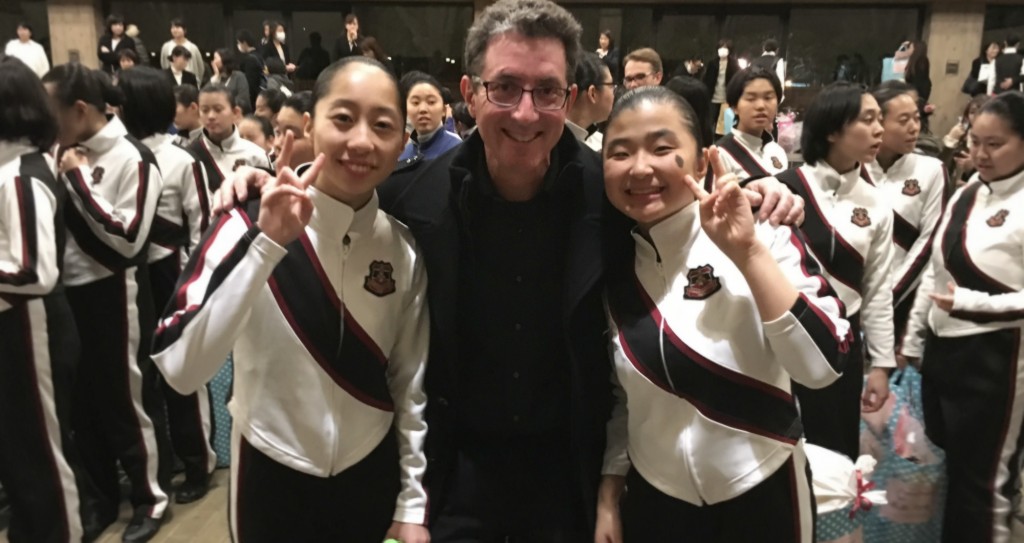
Every other year the Tamana All Girls’ High School Band travels to Washington state for an exchange with the Graham Kapowsin High School and a friendship concert at PLU. The eight-year long relationship has created bonds that stretch across the ocean. This year, three Graham…
Japan is highly structured. Students meet before school for individual practice, warm up, or group sectional, and then meet after school, for up to five hours. They also work at length on Saturday and sometimes Sunday. The Tamana group is polished and performs at an extremely high level for an ensemble made up of 14-17 year-old students. “The Tamana Band practices with so much respect for the group effort,” Gerhardstein explained. “From this I’ve learned to give my best to not only do my part in
-

From 1965 until his death in 1974, Edward Kennedy “Duke” Ellington reformed both his worldview and his music. With his advancing age, failing health, and the death in of his beloved co-composer Billy Strayhorn, Ellington came to realize the impermanence of life and rekindled the…
the three “the most important thing I’ve ever done.” On Wednesday, March 15 at 8 p.m., PLU’s University Jazz Ensemble and University Chorale will perform selections from Duke Ellington’s Sacred Concerts in Eastvold Auditorium of the Karen Hille Phillips Center for the Performing Arts as part of the 2017 SOAC Focus Series on Re-forming. Professor of Religion Doug Oakman will speak, highlighting the intersection of faith and music. “Ellington’s music and life reflected intense sensuality and
-
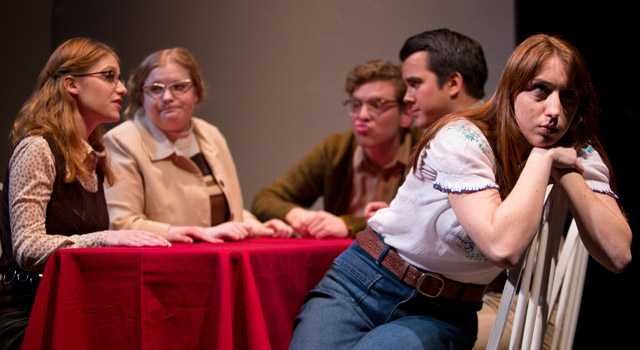
As part of the SOAC Focus Series – Empowerment, there was a discussion with PLU students and the cast of “How I Learned to Drive.” (Photos by John Froschauer) Facets of self By James Olson ’14 Since its 1997 debut off-Broadway, Paula Vogel’s “How I…
– who in the play ages from 11 to 18 – and her Uncle Peck. The script casts a translucent vale over the archetype of the abuser, and grants a pained humanity to those who do the damaging. It is a daunting, sensitive piece, and PLU’s five-person ensemble approached it with marked poise and reflection. Ali Schultz ’14 played Lil’ Bit, and Jack Sorenson ’13 played her abuser, lover, best friend, and pseudo-father, Uncle Peck. Following performance Friday, March 9, the cast and director –Assistant
-

Center Stage: The $20 million Karen Hille Phillips Center for the Performing Arts officially opens in October By Steve Hansen Jeff Clapp ’89, PLU artistic director of theater, PLU theater program undergraduate, son of a theater professor, likes to tell a story of his tenure…
, and that would feature an ensemble cast. She feels she is most successful when she is part of an ensemble cast – working in collaboration with her fellow students. This idea of collaboration is a common theme that seems to run throughout the PLU theater program – the whole campus, really. It is evident as Schultz talks about staging her upcoming drama. It is evident almost any day in the new studio theater and scene shop, which has come to serve as something of an ad hoc theater workshop and
-
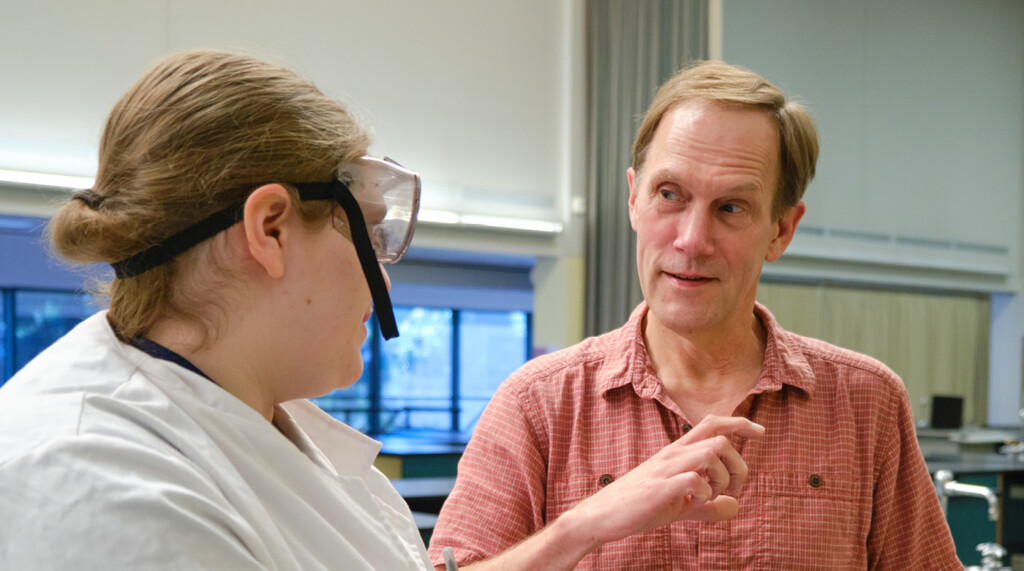
PLU Chemistry professor Dean Waldow hopes to one day become useless. After all, as an educator, his job is to empower students to work confidently and independently in a field that is constantly innovating. He does this by bringing students into his lab to help…
that can not only help make batteries safer, but also charge them faster and store energy from renewable sources such as wind and solar. One goal is to create a solid- state battery that does not rely on an organic liquid to move ions in the battery. It’s work that Waldow hopes will help humans make the shift away from fossil fuels.“Not only should solid-state batteries be better from a safety perspective, but the time it takes to charge could be lessened and how much energy you could store in the
-
Blog depicts people, places on seven continents From the tip of the world in Antarctica to the top of the highest peak in Africa, PLU students are immersing themselves in the world and gaining valuable insight this J-Term. Nearly 400 students are studying away on…
. Visitors can also post comments on blog entries. To learn more about the study away opportunities at PLU, visit the Wang Center for International Programs’ Web site, or contact the center at ext. 7577 or wangctr@plu.edu. University Communications staff writer Megan Haley compiled this report. Comments, questions, ideas? Please contact her at ext. 8691 or at haleymk@plu.edu. Photo of Dubai water taxis provided by communication professor Cliff Rowe. Read Previous UC, Morken powered by wind turbines Read
-
Face the Music Inevitably, worried parents will arrive on music professor Greg Youtz’s office doorstep after their child has announced they want to become a composer. “Now what?” the parents ask Charged with running the university’s composition program, Youtz usually succeeds in calming the parental…
orchestral pieces start playing in their heads. Inspiration can come from just about anything, from another song, the revving of an engine or wind howling through the trees. It’s also a rather odd craft to explain. When pushed, many composers stall as they try to translate how an initial idea becomes an orchestral or a jazz piece. “It’s a lot of staring out the window for hours before you finally start writing something,” said David Joyner, PLU’s director of jazz studies. “Then you just have to reach
-
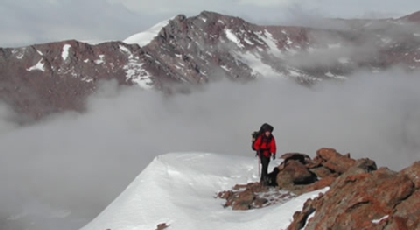
PLU student and prof head to Antarctica for global warming research through study of rocks and ice By Barbara Clements In a lab littered with Hostess snack bars and French fry wrappers, geosciences student Mike Vermeulen ’12, turns to his computer and pops up a…
remembers that on her first trip to the continent, a wind gust picked her up, with a fully loaded pack, and slammed her into a rock. This will be Todd’s third trip back to Antarctica. This research on the rocks will not only provide clues into long-term global warming, but give a sense of long-term ice pack development and sea-levels. For low-lying communities, this information is critical. In short, “ice matters,” Vermeulen said. While on their trip, the team will be talking with three elementary
-
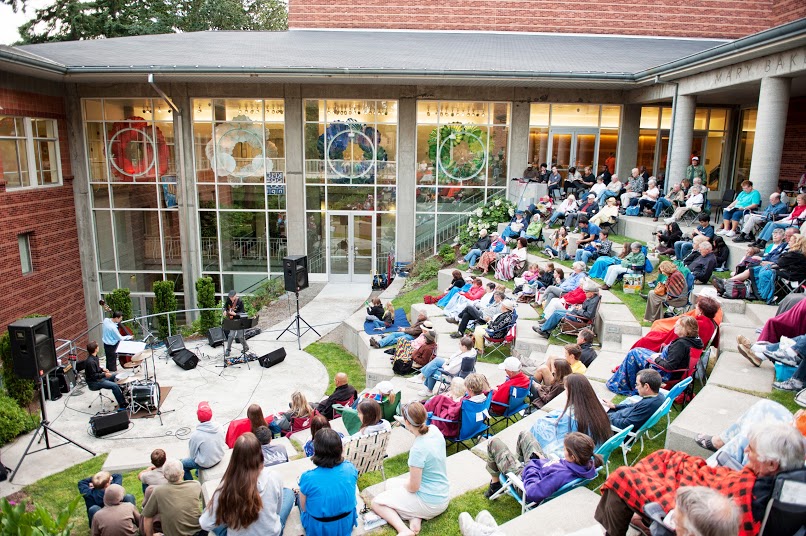
16th Annual Jazz Under the Stars Kicks Off July 10 By Sandy Deneau Dunham, PLU Marketing & Communication As a gift to the community—and really, to everyone who attends—the Pacific Lutheran University Department of Music kicks off its free summer concert series, Jazz Under the…
players” (San Francisco Chronicle). Today, he leads the Dmitri Matheny Group, an all-star ensemble featuring some of the most accomplished jazz artists in the western states. July 24 Hilary Gardner In 2010, acclaimed singer Hilary Gardner was chosen by the Frank Sinatra estate to appear as the live, onstage singer in Twyla Tharp’s Come Fly Away. Gardner performs throughout New York City and is a frequent soloist with symphonies throughout the United States. Moby featured Gardner prominently on his
Do you have any feedback for us? If so, feel free to use our Feedback Form.


